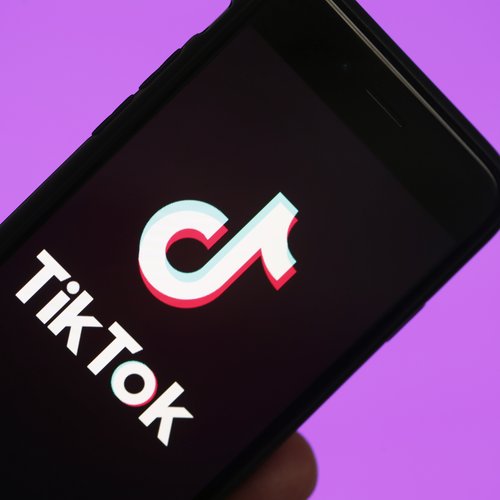What does Simp mean? The TikTok and Twitter phrase explained
26 May 2020, 14:20

JoJo Siwa keeps roasting her haters on TikTok
CEO of explaining what 'Simp' means.
If you've been on social media lately, the chances of you seeing people calling each other 'simps' or proclaiming to be a simp for a certain celebrity will be high.
The phrase has had a surge in usage recently thanks to TikTok, and now it's spilled over in to stan Twitter. But what does it actually mean?
READ MORE: What do 'two fingers touching' emojis mean on TikTok?
Well, there's two meanings really; the original slang meaning, and the slightly less offensive meaning that's been adopted by fandoms all over the world. Here's what you need to know...
What does 'Simp' mean on social media?

There’s two definitions for the word. One that carries toxic, misogynistic connotations and one that’s that’s evolved into a joke between Gen Z-ers and the TikTok community. Let’s start with the first definition.
Simp, according to Urban Dictionary, is an acronym for 'Suckas Idolising Mediocre Pussy'. Know Your Meme states that the earliest known definition was added to the online dictionary way back in 2005, explaining that a simp is a guy “who tags along with hot girls because he thinks it will get him laid.” Other explanations of the word on the site include: "A man that puts himself in a subservient/submissive position under women in hopes of winning them over, without the female bringing anything to the table” and “A square with no game other than ‘Rolling out the Red-Carpet’ for every female.”
Dictionary.com also says the slang insult is used “for men who are seen as too attentive and submissive to women, especially out of a failed hope of winning some entitled sexual attention or activity from them.”
Essentially, a more familiar term would something like “whipped” or "friendzoned", but a little more extreme.
The word simp is usually used by men to make fun of other men who treat women with respect, and is predominantly used by people who believe in men’s rights.
The other day I googled “simp” just to make sure it was basically the new “cuck” and, sure enough, yup pic.twitter.com/61rbcrKW43
— Kate Leth 🏝 (@kateleth) May 20, 2020
Towards the end of 2019, a challenge popped up on TikTok called “Simp Nation”. The trend, set to a Smash Mouth remix of Post Malone’s 'Rockstar', sees teens (mostly males) explain a scenario where they attempted to do something nice for the person they like (usually a girl).
When it doesn’t work, the Tiktoker is welcomed to “Simp Nation,” a place where any guy who has failed in his bid to woo a girl goes.
The trend then trickled down into the every day vocab on the app, with videos of guys jokingly "exposing" themselves or their friends for "simping" after girls. The #Simp hashtag on TikTok has now over 870 million views.
While a large majority of TikToks still play in to the toxic connotations of the original term, over the past year or so ‘simp’ has been given a slightly new meaning by Gen Z.
Now, the phrase has been turned on its head, and is used in jokey ways, or within the stan community by girls.
Phrases like “CEO of simping,” and “I might have to simp” popped up on social media, with teens openly calling themselves simps for a variety of reasons. Whether it be a cute guy or girl, a celebrity, a TV character, your fave K-Pop idol...fandoms and stan communities have adopted the phrase. You can be a simp for all those things, meaning that you would do anything for those you have a crush on.
In the TikToks below, girls share the fictional characters that they would simp for.
But while the term has taken on a new life, it still carries those negative connotations and could further promote toxic masculinity to young audiences. These put downs aimed at men, mostly, could be damaging.
Speaking to Bustle, counselling psychologist Dr. Raffaello Antonino warns: “The impact of this at a psychological level can be of a reduction in self-esteem and self-confidence, as it may correspond to the formation of negative beliefs about oneself. For example, 'I’m not good enough,' 'I’m unlovable,' 'I’m a loser.'"
With the term rising in popularity, a new trend of people calling it out is now emerging on TikTok.





















